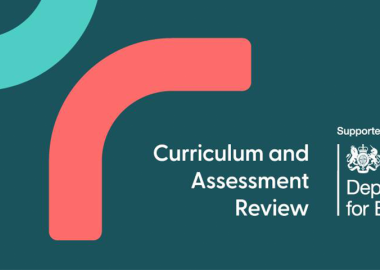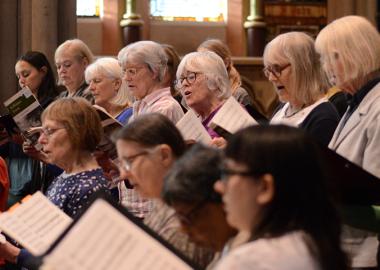Making Music joins creators, educators and industry to urge Government rethink on the EBacc
The Bacc for the Future campaign is back again following the Department for Education’s announcement of plans to introduce a compulsory list of subjects at GCSE level.
The new EBacc proposals would require every pupil to study English, maths, a science, a humanities subject (defined as only history or geography) and a language (ancient and modern) and would rank schools on performance in only these subjects, excluding the arts altogether.
By focussing on a narrow range of subjects at GCSE, creative industry relevant qualifications are being put at risk. The proposal could force creative subjects out of many secondary schools, which will have a knock-on effect on the creative industries, which are worth £76.9bn per year to the UK economy.
Figures have already shown a drop in arts GCSEs being taken over the last few years, with a small increase taking place following the retraction of the EBacc at the start of 2013. (See notes below.) When announcing the previous EBacc u-turn in 2013, Michael Gove proposed ‘a more balanced and meaningful accountability system’ which would reflect achievement across a wide range of eight subjects.
Key industry figureheads and organisations, including Making Music, have come together to publicly voice their concerns.
You can add your voice to theirs by completing the BACC For The Future online petition.
Julian Lloyd Webber, Principal of Birmingham Conservatoire, said:
It is crazy that we should have to be fighting this battle all over again! Countless studies throughout the world have PROVED that children do better in their other subjects if they study music and play an instrument. We are lagging behind countries like China that have recognised this and where children playing instruments and studying music in school is the norm. The UK is missing out on talent in an area which has been of enormous benefit to the UK’s economy and prestige and these short-sighted proposals will exacerbate the problem.
Barbara Eifler, Chief Executive, Making Music said:
As the organisation for amateur music in the UK we know that the 170,000+ individuals - singers and players - who make up our membership of 3,000+ groups are passionate about the benefits that have accrued to them personally, to their working lives and to their communities through their ability to engage with music. This ability is a gift most of them received during their time in compulsory full-time education. Our members are therefore dismayed that access to music and its manifold benefits - just as they are increasingly proven by numerous studies - is being denied to the next generation due to the narrow focus of the proposed EBacc.










